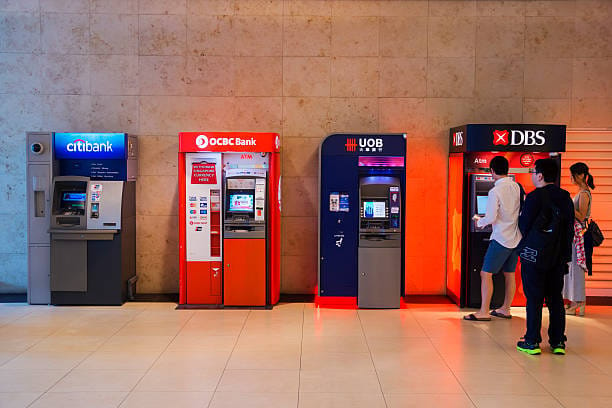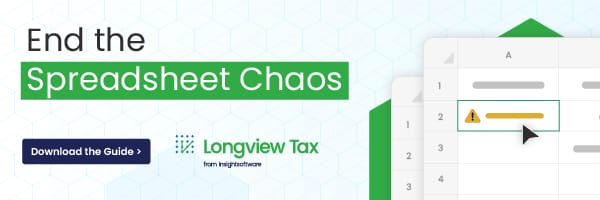- L-Plate Retiree
- Posts
- On Dependence, Agency, and the Things We Can Control
On Dependence, Agency, and the Things We Can Control
What a heartbreaking story reminded me about the freedom – and weight – of choice

because retirement doesn’t come with a manual


the power is yours!
One of the stories that struck me this week was the report into the death of four-year-old Megan Khung in 2020. Megan died from prolonged abuse by her mother and her mother’s boyfriend – starvation, beatings, being forced to sleep outside. The most tragic part was how long it went on: more than a year. The review panel’s findings revealed multiple missed chances across agencies that could, and should, have intervened.
Like most people reading it, I felt deep sadness – not just for what happened, but for what it said about how powerless a child can be. At four, Megan was entirely dependent on the adults around her – parents, grandmother, teachers, the system – to do the right thing. She had no agency, no choice, no control.
It made me think of something I wrote about a long time ago – the very first Weekend Musings piece I ever published: Agency. Back then, I wrote about how taking charge of our retirement journey starts with recognising that we do have control – over our money, our health, our time, our relationships. This week reminded me why that idea matters even more now.
Because in retirement, we actually have what Megan didn’t – agency. The ability to decide, act, and shape outcomes. And yet, many of us still give it away too easily – to systems, to policies, to “whatever happens.”
Yes, the system helps. Singapore’s CPF Life, public healthcare, the community networks – they form an essential safety net. But they were never meant to replace personal responsibility. A change in policy, a shift in funding, a surprise in the markets – all can alter the landscape overnight. The only constant is the agency we bring to adapt.
The same truth applies to health. Medicine can treat, but it can’t replace daily choices. Every walk, every home-cooked meal, every good night’s sleep is an act of agency. And socially, too – algorithms can’t replicate human warmth. Loneliness may be a growing health risk, but showing up for friends, family, and community remains firmly within our control.
So perhaps what this week’s tragedy reminds us is that dependence without agency is vulnerability – but agency without compassion can be selfish. The sweet spot lies in using our independence not only to protect ourselves, but to notice and help those who can’t yet act for themselves.
Your turn:
Where in your life are you exercising agency – and where might you be giving it away too easily?
How can your freedom to act also become someone else’s safety net?
👉 Hit reply and share your thoughts – I’d love to hear what’s resonating with you.
☕ If today’s musing brought you back to where this journey began, you can shout me a coffee on Ko-fi.
It's not you, it’s your tax tools
Tax teams are stretched thin and spreadsheets aren’t cutting it. This guide helps you figure out what to look for in tax software that saves time, cuts risk, and keeps you ahead of reporting demands.

Your Cash, But Smarter!

when was the last time you’ve withdrawn cash?
Hello again, L-Plate Retirees! We've journeyed through the exciting world of equity investments and the steady landscape of fixed income securities. Now, let's chat about something even more fundamental to your financial well-being, a concept introduced in our Foundations of Investing: cash. But not just sitting under your mattress – we're talking about making your cash work a little harder, while keeping it safe. These are your Cash and Cash Equivalents, crucial for both your Personal Financial Assessment and managing Risk and Return.
Think of these as your financial pit stop, where your money can rest, refuel, and earn a few extra pennies without much risk. The main goal here is liquidity (quick access, vital for emergency funds) and capital preservation (keeping its value, a low-risk strategy).
Your everyday Bank Deposits are the most common form: savings, checking, and fixed-term deposits (like Certificates of Deposit or CDs). The good news? Many countries have deposit insurance (like FDIC in the US or standardized protection in the EU) that protects your money up to a certain limit. So, even if the bank struggles, your nest egg is safe. Interest rates can be low, but they're super reliable, offering a very low-risk return.
Then we have Money Market Funds. These are like mutual funds, but they invest in very short-term, high-quality debt. They aim to maintain a stable value (usually $1 per share) and offer slightly better returns than a regular savings account. They're generally considered very low risk and great for parking cash you might need soon, though they aren't government-guaranteed like bank deposits. This represents a slightly higher risk/return profile than bank deposits.
For the super-safe, super-short-term stuff, there are Treasury Bills (or T-Bills). These are short-term loans to the government, usually for less than a year. They're considered the safest investment in their respective currencies and are often used by big institutions. You buy them at a discount and get the full face value back at maturity – a neat trick! Their minimal risk makes them a cornerstone for capital preservation.
Finally, there's Commercial Paper, which is short-term debt issued by big, creditworthy companies. It offers a bit more yield than T-Bills but comes with a touch more risk. It's usually for institutional investors, but it's good to know it exists in the cash universe.
The key takeaway: even your cash can be an active part of your investment strategy. It's not just sitting there; it's waiting for its next big adventure, ready to be deployed according to your financial plan!
L-Plate Takeaways:
Cash is King (for safety & access): Cash and cash equivalents keep your money liquid and preserve its value, essential for emergency funds.
Bank Deposits: Your everyday accounts, often government-insured for peace of mind, offering low risk.
Money Market Funds: Slightly better returns than savings, low risk, but not government-guaranteed. A step up in potential return for a tiny increase in risk.
Treasury Bills: Super safe, short-term government loans. Great for parking cash with minimal risk, aligning with capital preservation goals.
Know Your Limits: Understand deposit insurance and the slight risk differences, a core principle from Foundations of Investing and Risk and Return Fundamentals. It's about smart storage!
Where to Invest $100,000 According to Experts
Investors face a dilemma. Headlines everywhere say tariffs and AI hype are distorting public markets.
Now, the S&P is trading at over 30x earnings—a level historically linked to crashes.
And the Fed is lowering rates, potentially adding fuel to the fire.
Bloomberg asked where experts would personally invest $100,000 for their September edition. One surprising answer? Art.
It’s what billionaires like Bezos, Gates, and the Rockefellers have used to diversify for decades.
Why?
Contemporary art prices have appreciated 11.2% annually on average
…And with one of the lowest correlations to stocks of any major asset class (Masterworks data, 1995-2024).
Ultra-high net worth collectors (>$50M) allocated 25% of their portfolios to art on average. (UBS, 2024)
Thanks to the world’s premiere art investing platform, now anyone can access works by legends like Banksy, Basquiat, and Picasso—without needing millions. Want in? Shares in new offerings can sell quickly but…
*Past performance is not indicative of future returns. Important Reg A disclosures: masterworks.com/cd.
The L-Plate Retiree community is just beginning, and we’re figuring this out together—no pretense, no judgment, just honest conversation about navigating this next chapter.
Subscribe now, or share it with a friend, to get weekly insights, practical tips, and the occasional laugh to help you prepare for or thrive in retirement. Unlike other newsletters that assume you already know everything, we keep it simple and human.
And if today’s lifestyle musings brightened your day, you can toss a coffee into our Ko-fi tip jar ☕. Think of it like leaving a tip for your favourite busker—only this busker writes about retirement.
Because retirement doesn’t come with a manual… but now it does come with this newsletter.
The L-Plate Retiree Team
(Disclaimer: While we love a good laugh, the information in this newsletter is for general informational and entertainment purposes only, and does not constitute financial, health, or any other professional advice. Always consult with a qualified professional before making any decisions about your retirement, finances, or health.)



Reply